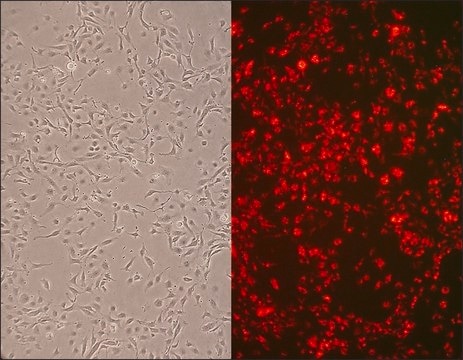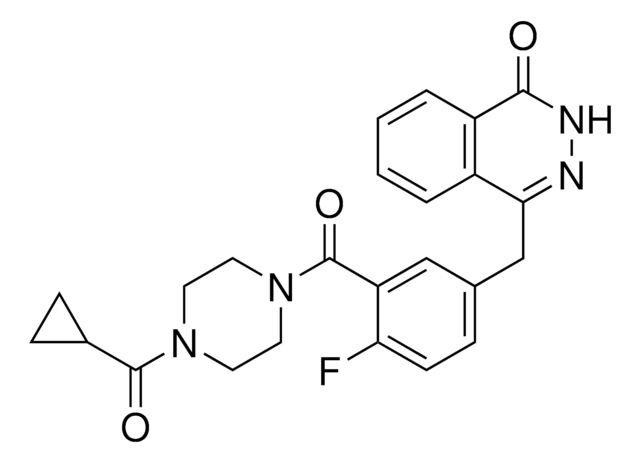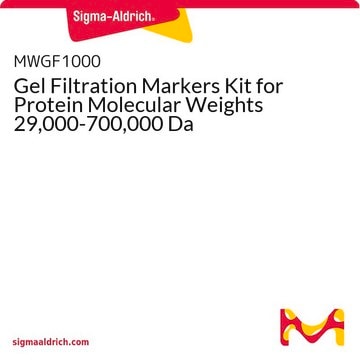CN304-05
Canine Aortic Endothelial Cells: CnAOEC (Cryovial)
Synonym(s):
Endothelial cell line
Sign Into View Organizational & Contract Pricing
All Photos(2)
About This Item
UNSPSC Code:
41106514
NACRES:
NA.81
Recommended Products
biological source
canine aorta
packaging
pkg of 500,000 cells
manufacturer/tradename
Cell Applications, Inc
growth mode
Adherent
karyotype
2n = 78
morphology
Endothelial
technique(s)
cell culture | mammalian: suitable
relevant disease(s)
diabetes; cardiovascular diseases
shipped in
dry ice
storage temp.
−196°C
General description
Lot specific orders are not able to be placed through the web. Contact your local sales rep for more details.
CnAOEC provide a useful model to study cardiovascular diseases and test potential therapeutic agents, not only important from a veterinary perspective, but also having implications for human health. In a study aiming to adapt an immunomagnetic isolation protocol used in human patients to isolate circulating endothelial cells in dogs, CnAOEC cells were shown to be positive for von Willebrand factor, CD146 and stained with Ulex europaeus agglutinin 1 (Wills, 2009). To investigate the mechanism of N-terminal portion of pro C-type natriuretic peptide (NT-pCNP), a sepsis biomarker in humans and dogs, CnAOEC were treated with a variety of agents and it was found that lipopolysaccharide, TNF-α and IL-1β, but not IL-6, IL-10, IL-21, CXCL-8, IFN-γ, VEGF-A, stimulated NT-pCNP production (Osterbur, 2012, 2013). CnAOEC were also used to demonstrate vasoprotective activity of pomegranate and soy isoflavons in order to prevent endothelial disfunction in dogs which commonly leads to cardiovascular disease (Baumgartner-Parzer, 2012). Finally, CnAOEC were utilized as a control to compare the growth of normal canine endothelial cells and aggressive canine hemangiosarcoma cells in a study investigating signaling pathways underlying hemangiosarcoma oncogenesis (Murai, 2012), and as a VEGFR2-positive control in a study aimed at understanding the reasons for reduced numbers of circulating progenitor cells in cardiovascular disease (Boilson, 2010).
CnAOEC provide a useful model to study cardiovascular diseases and test potential therapeutic agents, not only important from a veterinary perspective, but also having implications for human health. In a study aiming to adapt an immunomagnetic isolation protocol used in human patients to isolate circulating endothelial cells in dogs, CnAOEC cells were shown to be positive for von Willebrand factor, CD146 and stained with Ulex europaeus agglutinin 1 (Wills, 2009). To investigate the mechanism of N-terminal portion of pro C-type natriuretic peptide (NT-pCNP), a sepsis biomarker in humans and dogs, CnAOEC were treated with a variety of agents and it was found that lipopolysaccharide, TNF-α and IL-1β, but not IL-6, IL-10, IL-21, CXCL-8, IFN-γ, VEGF-A, stimulated NT-pCNP production (Osterbur, 2012, 2013). CnAOEC were also used to demonstrate vasoprotective activity of pomegranate and soy isoflavons in order to prevent endothelial disfunction in dogs which commonly leads to cardiovascular disease (Baumgartner-Parzer, 2012). Finally, CnAOEC were utilized as a control to compare the growth of normal canine endothelial cells and aggressive canine hemangiosarcoma cells in a study investigating signaling pathways underlying hemangiosarcoma oncogenesis (Murai, 2012), and as a VEGFR2-positive control in a study aimed at understanding the reasons for reduced numbers of circulating progenitor cells in cardiovascular disease (Boilson, 2010).
Cell Line Origin
Aorta
Application
cardiovascular function, studies on immune system and graft rejection, development of 3D endothelialized engineered tissues, drug discovery, stent-graft compatibility testing
Components
Canine Endothelial Cell Basal Medium containing 10% FBS & 10% DMSO
Preparation Note
- 2nd passage, >500,000 cells in Canine Endothelial Cell Basal Medium containing 10% FBS & 10% DMSO
- Can be cultured at least 16 doublings
Subculture Routine
Please refer to the CnAOEC Culture Protocol.
Storage Class Code
11 - Combustible Solids
WGK
WGK 3
Flash Point(F)
Not applicable
Flash Point(C)
Not applicable
Certificates of Analysis (COA)
Search for Certificates of Analysis (COA) by entering the products Lot/Batch Number. Lot and Batch Numbers can be found on a product’s label following the words ‘Lot’ or ‘Batch’.
Already Own This Product?
Find documentation for the products that you have recently purchased in the Document Library.
Our team of scientists has experience in all areas of research including Life Science, Material Science, Chemical Synthesis, Chromatography, Analytical and many others.
Contact Technical Service







